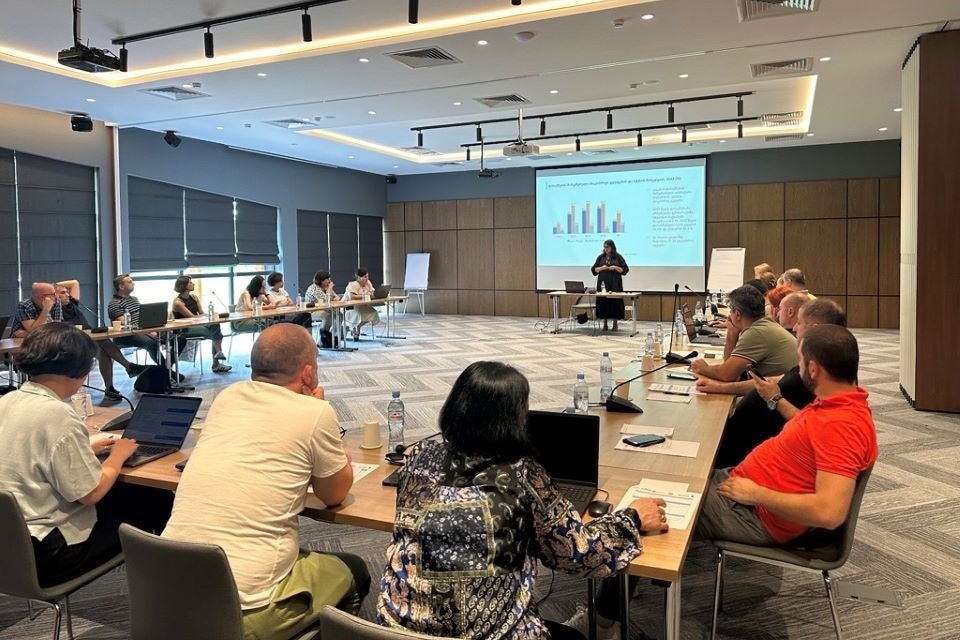Public servants increase their knowledge of gender mainstreaming
Date:

Aligned with the gender mainstreaming agenda enshrined in the Beijing Declaration and Platform for Action, UN Women supports the Government of Georgia in integrating gender data and analysis in policymaking and budgetary processes.
In collaboration with UNDP, the Ministry of Finance and the Administration of the Government of Georgia, UN Women conducted a series of gender mainstreaming trainings for public servants in the summer of 2024. The trainings aimed to strengthen public servants’ capacity to effectively integrate gender perspectives into policy and budgeting processes through the use of gender data analysis and indicators. This initiative is aligned with Georgia’s commitments under the Public Administration Reform (PAR) Strategy and its corresponding Action Plan on strengthening the gender perspective in policymaking processes.
More than 122 public servants from five ministries participated in the trainings, enhancing their knowledge on promoting gender-responsive and data-driven approaches to sectoral policy planning and implementation. The five ministries included the Ministry of Regional Development and Infrastructure, the Ministry of Economy and Sustainable Development, the Ministry of Environmental Protection and Agriculture, the Ministry of Education, Science and Youth, and the Ministry of Internally Displaced Persons from the Occupied Territories, Labour, Health and Social Affairs.
The trainings equipped participants with in-depth knowledge and practical skills necessary to integrate gender considerations into their respective sectors. The training covered a range of critical topics, including tools and strategies for gender mainstreaming within specific sectoral policies, advanced techniques for data collection and analysis, and the effective use of gender data and indicators. Participants also explored the application of gender indicators in the development and implementation of policies. Through a combination of interactive exercises, group discussions and case studies, participants were able to directly incorporate these gender-responsive approaches into their work, significantly enhancing their capacity to develop more inclusive and equitable policies.
This initiative is part of UN Women’s broader efforts to support gender-responsive governance processes in Georgia. By building the capacity of public servants to integrate gender considerations into their policymaking and budgetary processes, this training contributes to the development of governance structures that are more inclusive and responsive to the needs of all citizens.
“This training has provided us with valuable insights into how gender perspectives can be effectively integrated into our daily work,” noted Batu Gurjidze, Head of the Economic Department at the Ministry of Regional Development and Infrastructure of Georgia. “The skills and knowledge we’ve gained will help us develop policies that are more equitable and inclusive.”
The initiative was conducted within the framework of the UN Women-implemented project “Women’s Increased Leadership for Democracy in Georgia” (WILD), supported by the Swiss Agency for Development and Cooperation (SDC).